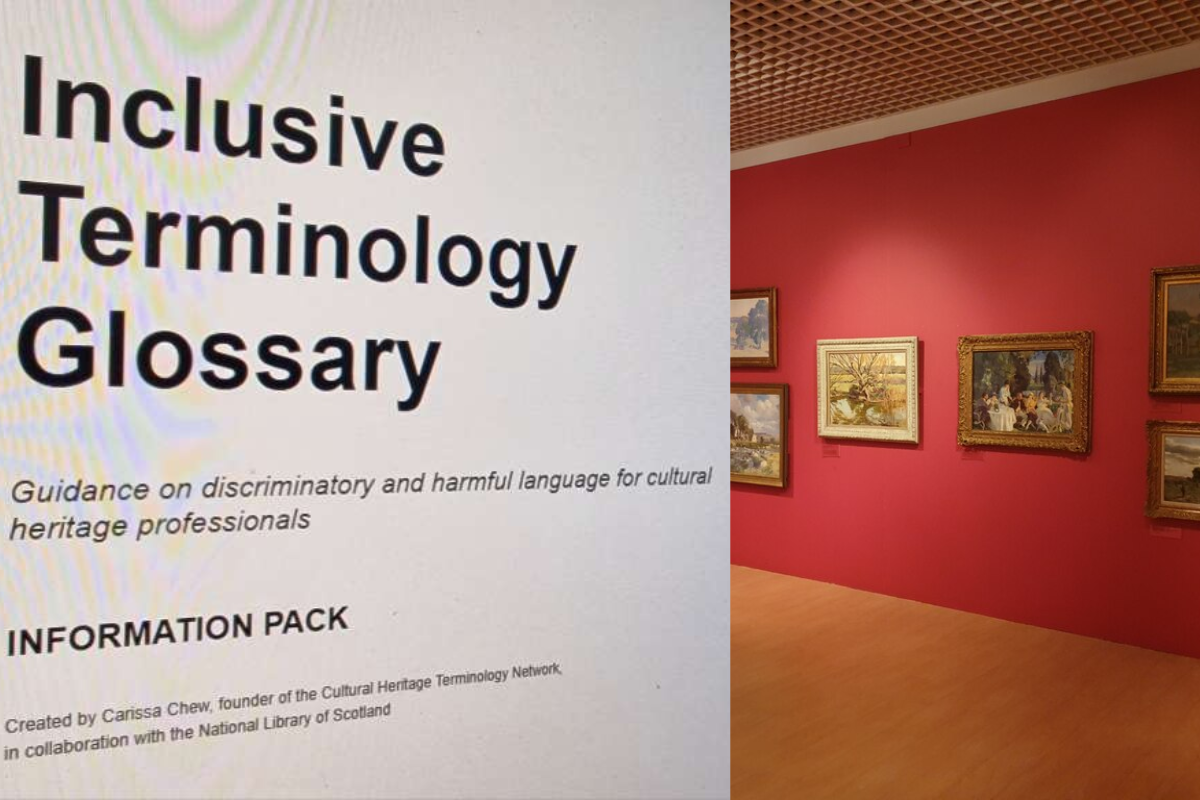
The Inclusive Terminology Glossary includes chapters on race, ethnicity, gender, sexuality, religion and disability
Photo: © Copyright Oscar Taylor
Collections Trust reviews weblinks policy after Hamas reference
Collections Trust has deleted a link to a terminology guide from its website following accusations that a section on Palestine described Hamas as 'freedom fighters'.
Collections Trust has announced it will review its policy on linking to third-party resources following complaints over descriptions of Hamas found in a terminology guide cited on its website.
As an Arts Council England Investment Principles Support Organisation (IPSO), the trust works with museums, libraries, galleries and archives to improve the management and use of collections.
The charity has said it plans to review all external terminology advice that its website links to after its “attention was drawn” to a section on Palestine in The Inclusive Terminology Glossary (TITG), an open-source guide developed, maintained and hosted by Cultural Heritage Terminology Network (CHTNUK).
READ MORE
- There is plenty of room in museums for all of us
- Arnolfini apologises for pulling Palestinian film event
In a statement, Collections Trust said it linked to TITG in 2021 and that it “signposts” to “hundreds of third-party resources” from its site. The IPSO said it was “not even aware” that the section on Palestine, which includes references to Hamas, had been added in the autumn of 2023.
Posting on its website, Collections Trust said it would like to “set the record straight” following the publication of an article in The Telegraph on 19 January titled "Taxpayer-funded charity’s guidance for museums calls Hamas 'freedom fighters'’’.
Collections Trust called the report “highly misleading” but sought to distance itself from TITG and deleted its link to the guide, saying it was "the first anyone at Collections Trust knew about any section on Palestine within this external resource".
“The Palestine-related content in question is not our guidance, but part of a broader third-party resource we had linked to before it was posted," wrote Collections Trust.
“It was not commissioned or paid for by Collections Trust with public or any other funds. It was not hosted on our website. Collections Trust had no involvement in writing it, and was not even aware of its existence until contacted by The Telegraph.
“Once it was drawn to our attention, we removed the link to it from our website. We will review all third-party terminology guidance we link to and our policy on linking to third-party resources in general.”
While it offers a directory of third-party guides to assist cultural organisations, Collections Trust's resource page says it “does not develop terminologies or dictate which ones you must use – this is a decision for your museum”.
'Disappointing'
Writing on X, CHTNUK called Collections Trust’s response “disappointing”, pointing to its chapter on antisemitism within the glossary and noting that citations referring to freedom fighting and apartheid originated from “a Jewish heritage organisation”.
Founded by Carissa Chew in 2021, CHTNUK is an online platform that promotes cross-institutional collaboration on inclusive description issues. It aims to provide practical recommendations for the cultural sector on how to “identify and address the presence of harmful imagery and discriminatory language across heritage collections, catalogues, websites and exhibitions”.
The Inclusive Terminology Glossary was created by Chew during an Equalities, Diversity and Inclusion internship at the National Library of Scotland. It includes chapters on race, ethnicity, gender, sexuality, religion and disability and is a collaborative, open-access document with edits reviewed by Chew.
In its introduction, it states: "Anybody can help improve the quality of information that the glossary contains. Language debates are complex and contested, and it is crucial that the document reflects multiple perspectives to become truly “inclusive” in its nature. Every section of the glossary needs to be subjected to rigorous review".
Speaking to Arts Professional, Chew said: "[The glossary] aims to be as comprehensive and inclusive as possible, but it relies on public contributions to do so. It would be discriminatory to purposefully exclude terminology debates regarding Palestinian experiences of marginalisation as well as Jewish social justice perspectives.
"Although the separate section on Palestine is a recent addition, the glossary has always included guidance regarding colonialism, racism, indigenous rights, Islamophobia and antisemitism."
Chew criticised the claims made in The Telegraph, saying it "[omitted] the parts where [the glossary] condemns the 7 October attacks as well as the entry’s citations from the Jewish-led heritage organisation, The Promised Land Museum: The Jewish Museum of the Palestinian Experience."
"Setting me up for accusations of antisemitism, the article did not include the fact that the glossary contains a section on the history of antisemitism and published a photograph of my face, leaving me vulnerable to personal attacks and racial abuse," said Chew, who is of Bengali and English heritage.
She added: “Collections Trust’s decision to remove the Inclusive Terminology Glossary from their resource list without consulting me is deeply disappointing, especially given that they used my training and resources to promote their own institution’s “inclusivity” and “anti-racist” practice in September and October 2023.
"You don’t have to agree with every single source that is cited in the glossary to recognise the value of a resource that collates marginalised people’s perspectives and forces heritage professionals to think twice about the words they choose. Plus, if you disagree with something it says or find that something is missing, you can add to it yourself."
Join the Discussion
You must be logged in to post a comment.